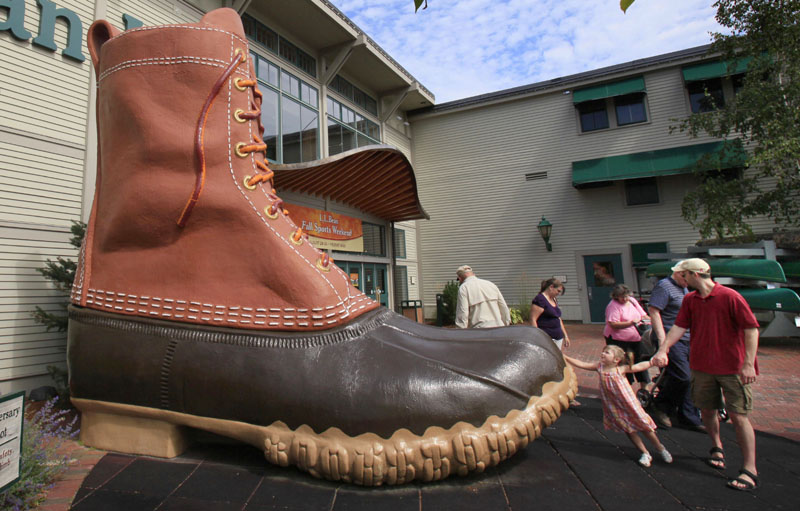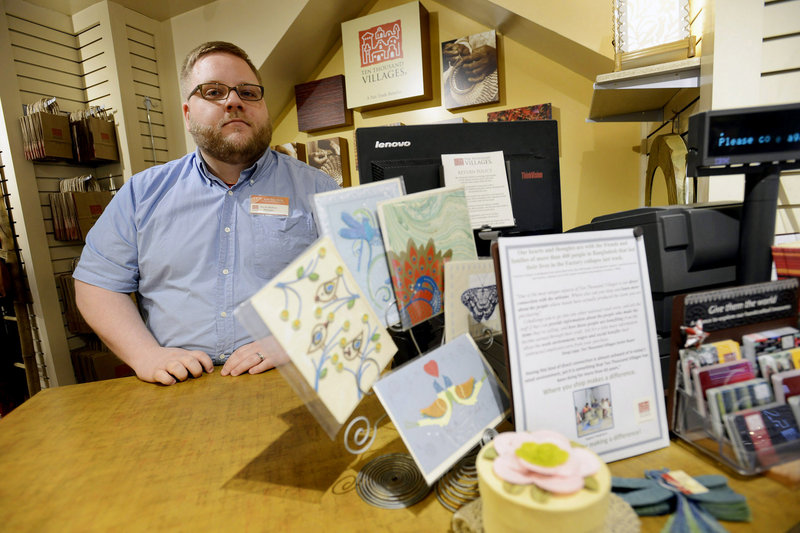In response to the factory collapse in Bangladesh that killed more than 500 people, L.L. Bean, which sells clothes made by contractors around the world, says it is stepping up its monitoring and visits of overseas production sites.
The Freeport-based company is one of many retailers and manufacturers that are re-examining the standards and practices of their overseas suppliers in the wake of last week’s factory collapse. Six months ago, a fire at a different garment factory in Bangladesh killed more than 100 people.
In March, Walt Disney Co. ordered an end to the production of its branded merchandise in Bangladesh and four other countries, while companies such as Wal-Mart Inc., J.C. Penney, Gap Inc. and the Children’s Place recently have looked at ways to improve working conditions in Bangladesh.
Such changes can be expensive for a company, and it’s not clear that all companies — or consumers — are willing to absorb the increased labor costs.
“It probably costs cents per garment, not 10 times the price, to make it in a safe, fair way,” said Jan Hammond, the Jesse Philips Professor of Manufacturing at Harvard Business School. “I would like to think people would take the economic hit and do the right thing. It’s an ethically easy decision for companies to make,” she said, but even cents per garment can make a difference in the highly competitive clothing industry.
Many retailers have moved their manufacturing to developing countries like Bangladesh as labor costs in China have risen in recent years.
Bangladesh is now the world’s second-largest apparel exporter, after China, with about 4,000 garment factories paying workers less than $40 a month. That compares with 40,000 garment factories in China, paying salaries close to $200 a month, according to a report by National Public Radio.
In addition to Bangladesh, L.L. Bean clothing and jackets are made in Thailand, Malaysia, El Salvador, Vietnam, Sri Lanka and China.
The company’s manufacturing monitors are in Bangladesh this week, L.L. Bean spokeswoman Carolyn Beem said.
“Following the tragedies in Bangladesh, most of the industry is thinking and rethinking sourcing practices. L.L. Bean has redoubled our monitoring efforts and factory visits,” Beem said in a written statement. “We do have one vendor in Bangladesh, however it is in a different part of the country from where the recent building collapse occurred, (and) is within an industrial zone and operates in a modern facility.”
L.L. Bean has a code of conduct for best practices that includes health and safety, and labor standards, the company says. All of the factories where it has production facilities are required to adopt that code of conduct, the company said.
To monitor manufacturing operations, Beem said, L.L. Bean has employees in the countries of production and others who travel from Freeport.
The company also works with third-party monitors who ensure that there is no subcontracting, she said.
Monitoring and enforcing codes of conduct in foreign countries can be difficult and costly for companies, but they are critical steps to protect lives and brand names, said Hammond.
“Monitoring is not trivial. You have to have a lot of people on the ground who really understand what’s going on in a facility and what’s going to a subcontractor,” she said. “It’s not impossible. It may be costly, but not as costly as losing hundreds of lives and the brand implications. These events have been quite damaging to brands over the years.”
Nike Inc., for example, faced a backlash in the 1990s over child labor in the production of its sneakers. Pressure from the public forced the company to change its practices.
Consumers play a role in whether companies change their practices. News coverage of the Bangladesh factory disaster may help raise awareness of the situation, Hammond said, but change isn’t easy, especially when it involves consumer spending habits.
“Consumers often pick the cheaper item,” she said.
On Friday, shoppers in Freeport said they were aware of the factory disaster in Bangladesh but weren’t sure whether it would make them change their buying habits.
Cathy Daszkiewicz of South Thomaston said she looks at labels and doesn’t buy clothes from certain countries, such as China, because she feels that the quality of the clothes and the dyes used may not be as good as those made in the U.S.
“If you pay for quality, things last. I work hard for my dollar,” said Daszkiewicz.
“I don’t really look at labels. If I’m thinking about it, I like when I see when it is made in the U.S.,” said Abigail Smith of Durham.
The factory collapse in Bangladesh may seem far away from Maine, but every purchase of an ethically made product is a responsible decision, said Kevin Hudson, manager of Ten Thousand Villages in Portland.
Ten Thousand Villages is part of a chain that forms relationships with artists in developing countries, buying their products through long-term, “fair income” relationships.
The chain, which sells products such as handmade silk paper lamps and pottery blessings bowls from Bangladesh, began in the 1940s in an effort to provide sustainable jobs and preserve traditions and cultures in villages around the world.
“Our mission is to provide stable and safe work environments so people don’t have to work in conditions like those,” Hudson said. “We have yearly trips to each area and have long-term ties to these artists to make sure things are done fairly. Fair trade is about providing an opportunity and not taking advantage.”
At the same time, Pramod Shrestha, who owns Freak Street Imports in Portland, said he hasn’t given the tragedy in Bangladesh much thought, since he imports his goods from Nepal and India. Nor has he seen customers who are concerned about where his goods originate.
“It’s sad. A lot of countries like that don’t have code enforcement. Everything works on bribes,” Shrestha said. “But there are conditions worse (than the factory in Bangladesh) in a lot of countries.”
L.L. Bean still operates a domestic facility that makes Bean boots, Maine hunting shoes, tote bags, dog beds and furniture cushions. And most of its furniture and many of its home furnishings are made in the U.S.
A limited amount of apparel is made domestically, L.L. Bean said.
“We continue to seek domestic sourcing opportunities for products that can be made at comparable cost and quality,” Beem said. “We do know from our customers that there is a growing interest in having more domestic production, though most realize this does not happen overnight.”
Jessica Hall can be contacted at 791-6316 or at:
jhall@pressherald.com
Copy the Story Link
Send questions/comments to the editors.




Success. Please wait for the page to reload. If the page does not reload within 5 seconds, please refresh the page.
Enter your email and password to access comments.
Hi, to comment on stories you must . This profile is in addition to your subscription and website login.
Already have a commenting profile? .
Invalid username/password.
Please check your email to confirm and complete your registration.
Only subscribers are eligible to post comments. Please subscribe or login first for digital access. Here’s why.
Use the form below to reset your password. When you've submitted your account email, we will send an email with a reset code.